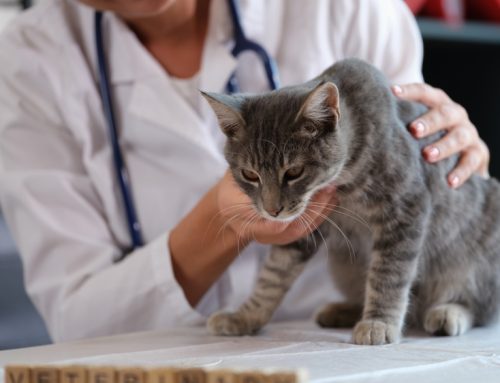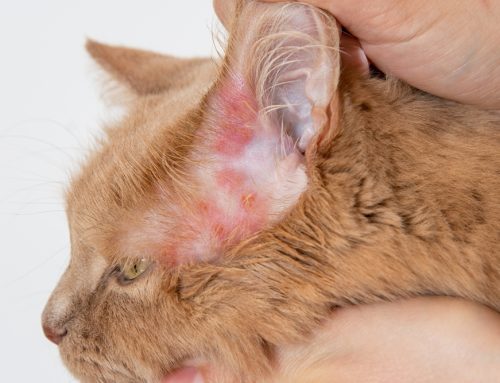French bulldogs, with their distinctive bat-like ears, charming personalities, and, let’s not forget, their knack for flatulence, have captured dog owners’ hearts worldwide. For the past few years, the American Kennel Club (AKC) rated the French bulldog the most popular dog breed. Frenchies are compact and affectionate companions, making excellent pets for various households, from singles to families. However, French bulldogs require proper care and attention to thrive. Our Chiefland Animal Hospital team explains everything you need to know about Frenchies, from their unique health characteristics to their essential care needs.
French bulldog breed conformation and demeanor
French bulldogs are a small breed known for their sturdy build and playful demeanor. Originating from England but gaining popularity in France, they were initially bred as companions for lace workers in the late 19th century. Today, they’re beloved for their friendly nature, adaptability to various living situations, and low exercise needs.
Frenchies are also a part of the brachycephalic family. Brachycephalic—flat-faced—breeds are those with shorter facial bones and muzzles. Bulldogs, pugs, boxers, and Lhasa apsos are a part of this family. Although adorable, brachycephalic pets have specific health conditions because of their abnormal facial conformation. Brachycephalic obstructive airway syndrome (BOAS) is caused by obstructed or dysfunctional breathing, of which many brachycephalic dogs are susceptible. These breeds are heat and rigorous exercise intolerant and may require frequent veterinary care to address problems associated with their condition.
Caring for your Frenchie
Armed with French bulldog facts, you may wonder what daily care your four-legged friend requires to help them thrive. Providing the best care for your Frenchie includes:
- Veterinary care — French bulldogs are susceptible to certain health issues, including respiratory problems, birthing difficulties, allergies, ear infections, heatstroke, and joint issues. Regular veterinary checkups are necessary for early detection and management of any potential health problems. Maintain vaccinations, flea and tick prevention, and other preventive care our veterinarian recommends for your bullie’s protection and wellness.
- Nutritious diet — Providing your French bulldog a balanced diet is crucial for their overall health and well-being. Choose high-quality dog food specifically formulated for small breeds or French bulldogs, and monitor their weight to prevent obesity, which can exacerbate health issues such as joint problems and breathing difficulties. Most French bulldogs are prone to weight gain, so follow our veterinarian’s guidance on food quantity.
- Moderate exercise — While French bulldogs don’t require rigorous training, they still need short walks and play sessions for their health and mental enrichment. Keep activities low-impact to accommodate their brachycephalic condition, which can make them prone to overheating. When you take your furry pal on walks a few times daily, you can keep them moving while minimizing risk. Since Frenchies are heat intolerant, ensure you take walks during cooler daytime hours, such as early morning and late evening. Give your pet additional enrichment with new toys, dental chews, and games to relieve their curiosity and boredom.
- Grooming needs — Frenchies have short coats that are relatively low-maintenance, requiring regular brushing to remove loose hair and dirt. When grooming your pup, pay special attention to their facial wrinkles, cleaning them gently to prevent irritation and infection. Additionally, trim their nails regularly. Frenchies’ nails can quickly grow long because the breed is not as active as others and, therefore, French bulldogs don’t wear down their nails. Trim your pet’s nails every other week to keep them in tip-top shape. To maintain your Frenchie’s dental health, brush their teeth daily with a small toothbrush and pet-safe toothpaste.
- Training and socialization — Despite their small size and friendly nature, French bulldogs can be stubborn, so you must start them early with consistent training and socialization. Use positive reinforcement techniques and be patient and consistent. Additionally, expose your Frenchie to various environments, people, and other pets from a young age to promote socialization and prevent behavioral issues.
Frenchies are delightful companions known for their unique anatomy and larger-than-life personalities. Proper care, nutrition, exercise, grooming, and veterinary care can ensure your pup leads a happy and healthy life. Schedule your Frenchie’s next wellness exam with our Chiefland Animal Hospital team. We look forward to seeing your pint-sized pup!








Leave A Comment